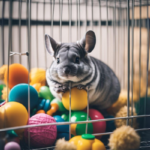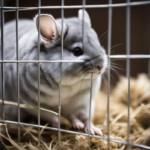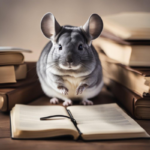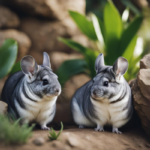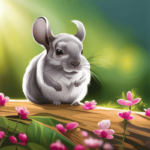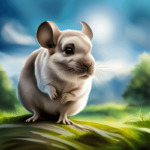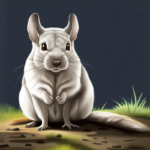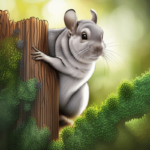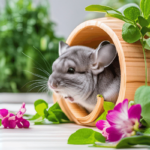Welcome to the ultimate guide on ensuring the safety and well-being of your adorable chinchillas through the careful selection of wood materials. As responsible pet owners, it’s crucial to create an environment that promotes both mental and physical health.
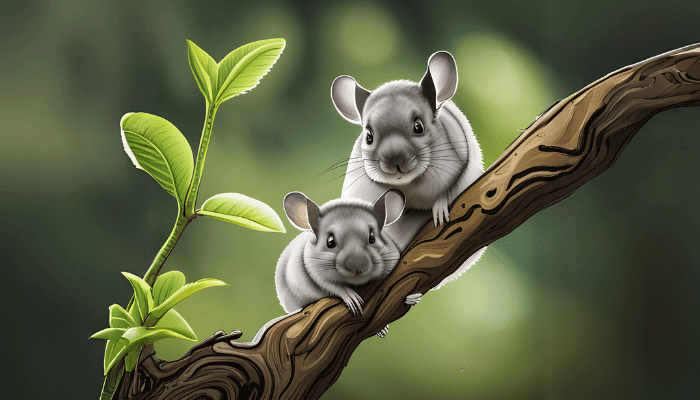
In this article, we’ll delve into the world of safe wood for chinchillas, exploring various types, their benefits, and answering frequently asked questions to help you make informed decisions.
What Makes Wood Safe for Chinchillas?
Before we dive into specific types of wood, let’s understand the criteria that make wood safe for chinchillas. The ideal wood should be untreated, free from chemicals, and non-toxic. Chinchillas love to chew, and ensuring that their chosen material won’t harm them is paramount.
Safe Wood for Chinchillas: Top Choices
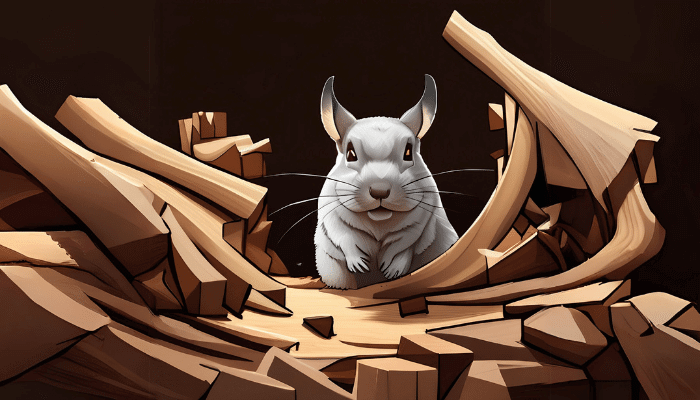
Apple Wood
Chinchillas have a penchant for chewing, and apple wood proves to be a delightful option. Not only is it safe, but it also provides a tasty diversion for your pets. The bark and wood are equally appealing, offering both texture and flavor.
Willow Wood
Known for its fibrous nature, willow wood is an excellent choice for chinchillas. It not only stimulates their chewing instincts but also provides a source of mental enrichment.
Hawthorn Wood
Hawthorn wood, with its tough texture, serves as a natural toothbrush for chinchillas. Chewing on this wood can aid in maintaining their dental health, a crucial aspect of their overall well-being.
Kiln-Dried Pine
While pine is generally considered unsafe due to its aromatic oils, kiln-dried pine is an exception. This process removes harmful substances, making it a safe and budget-friendly choice.
Cedar Wood
Contrary to popular belief, cedar wood is not safe for chinchillas. The aromatic oils present in cedar can lead to respiratory issues and skin irritation in these sensitive animals. It’s best to steer clear of cedar when choosing wood for their habitat.
Manzanita Wood
Manzanita wood is known for its durability, making it a long-lasting chew option. Its sturdy nature provides an excellent outlet for your chinchilla’s chewing needs without splintering.
Aspen Wood
Aspen wood is another safe alternative for your chinchilla. Its soft texture is gentle on their teeth, and it’s free from harmful toxins. It also poses less of a choking hazard due to its fibrous nature.
Grapewood
Grapewood not only meets safety standards but also adds a touch of aesthetics to your chinchilla’s habitat. Ensure it’s properly cleaned and pesticide-free before introducing it to your pets.
What Constitutes Safe Wood for Chinchillas?
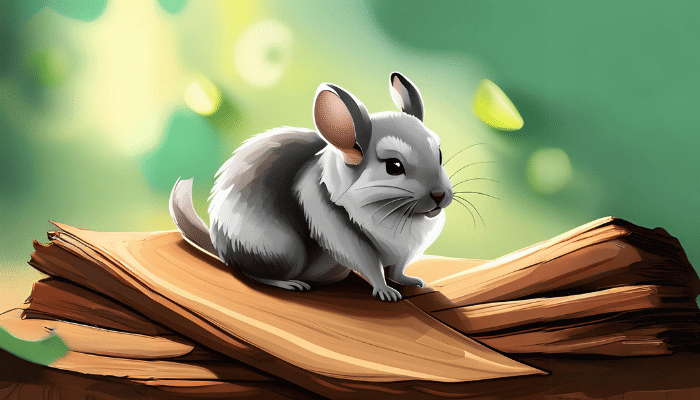
Hardwoods vs. Softwoods
Chinchillas have powerful jaws, and their chewing habits can put even the toughest wood to the test. Hardwoods like apple, pear, and hawthorn are excellent choices due to their durability and resistance to chewing.
On the flip side, softwoods like pine and cedar should be avoided, as they can splinter easily, posing a choking hazard.
The Role of Tannins in Wood Selection
Tannins are organic substances found in some woods, and they can be harmful to chinchillas. Safe Wood for Chinchillas should be low in tannins. Hardwoods like aspen and apple score high in this regard, ensuring your furry friend’s safety.
Creating a Chinchilla-Safe Environment
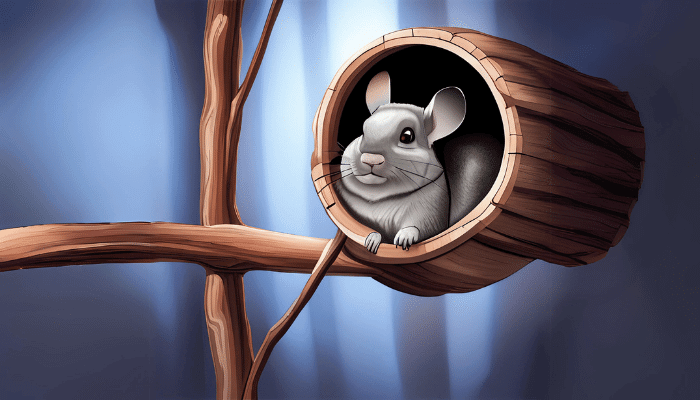
Ensuring your chinchilla’s habitat is safe involves more than just choosing the right wood. Consider the following tips:
Provide a Spacious Cage
Chinchillas are active and playful, so a spacious cage allows them to exercise and explore. Include platforms, tunnels, and a designated area for chewing toys.
Maintain a Balanced Diet
A well-balanced diet is crucial for your chinchilla’s overall health. Include hay, pellets, and fresh water in their daily meals.
Regular Veterinary Check-ups
Schedule regular check-ups with a veterinarian who specializes in exotic pets. Early detection of any health issues is key to ensuring a long and happy life for your chinchilla.
Conclusion
In the quest for a happy and healthy chinchilla, the significance of choosing the right wood cannot be overstated. Safe Wood for Chinchillas is a combination of durability, low tannins, and resistance to chewing. Opt for hardwoods like aspen, apple, or pear, and steer clear of softwoods like pine and cedar.
FAQs About Safe Wood for Chinchillas
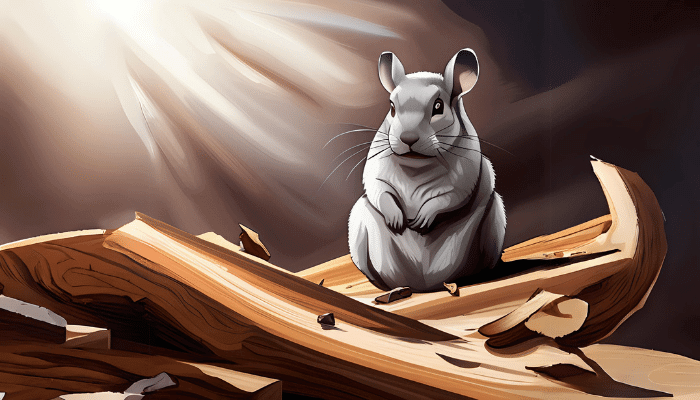
Can I Use Store-Bought Chinchilla Toys?
While store-bought toys may claim to be chinchilla-friendly, it’s crucial to check the materials used. Opt for toys made from safe woods like apple, willow, or hawthorn, ensuring your chinchilla’s well-being.
How Often Should I Replace Chewing Wood?
Chinchillas have a natural instinct to chew, and the frequency of wood replacement depends on their activity level. Inspect the wood regularly for any signs of wear or splintering, and replace it as needed.
Are All Fruit Woods Safe for Chinchillas?
While apple wood is generally safe, not all fruit woods are created equal. Avoid using woods from fruit trees that produce toxic fruits, such as cherry or apricot trees.
Can Chinchillas Chew on Pine Shavings?
Pine shavings should be avoided, as they may contain harmful oils. Stick to solid pieces of kiln-dried pine for a safe chewing experience.
Is DIY Wood Treatment Safe?
DIY enthusiasts may be tempted to treat wood themselves, but it’s safer to choose commercially available, chinchilla-approved options. DIY treatments may involve chemicals harmful to your furry friends.
